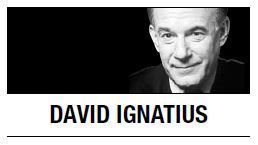Many people do crazy things in middle age. I decided to write the libretto for an opera about Niccolo Machiavelli. It’s called “The New Prince,” premiering here this weekend at the Dutch National Opera.
When I began work on this project in 2014 with composer Mohammed Fairouz, the possibility that Donald Trump would be president of the United States — or that the Machiavellian aspects of his personality would be a subject of global concern — was nearly unimaginable. But that was then.
Two days after Trump’s election, I wrote that he embodied some of the amoral qualities that the Florentine philosopher recommended in his masterpiece, “The Prince.” Certainly, Trump is ruthless. He lies, deceives and manipulates where necessary. And he is lucky, a quality Machiavelli thought was crucial in politics, but one that he rarely experienced in his own life.
But on further consideration (which, surely, a librettist is allowed), I don’t think that Trump, with his braggadocio and contempt for fact, really embodies the spirit of “virtue” that Machiavelli regarded as essential for political success. Machiavelli believed in the fact-based life. He insisted on telling the truth to his princes, no matter how painful or scandalous it might be. In this sense, Trump, the serial fabricator, may be the anti-Machiavelli.
Trump often seems to be embracing one of the ideas that Machiavelli feared most, which is that politics can transform culture and, indeed, human character.
There’s a distant echo in his populism of Girolamo Savonarola, the fanatical friar who sought to cleanse Florence of the contamination brought by the Medici banking family that had ruled the city-state before. This call to deconstruction and reformation has been summed up by Trump in the phrase “Drain the swamp.”
The clearest advocate of Trump’s revolutionary ideology has been Stephen K. Bannon, his chief strategist. Bannon has expressed admiration for Thomas Cromwell, the shrewd Machiavellian adviser to King Henry VIII who is featured in Hilary Mantel’s “Wolf Hall” trilogy. But Bannon sounds to my ear less like the supple, calculating Cromwell, and more like his idealistic, die-hard nemesis, Thomas More.
We hear Bannon’s voice in nearly every proclamation and executive order from the White House. But perhaps the clearest distillation was a 2014 address to a conference at the Vatican that was, in effect, a mobilization for cultural war. I quote Bannon:
“We’re at the very beginning stages of a very brutal and bloody conflict ... to fight for our beliefs against this new barbarity that’s starting, that will completely eradicate everything that we’ve been bequeathed over the last 2,000, 2,500 years.”
Bannon warned about what he called the “jihadist Islamic fascism” of the Islamic State, and also about the “immense secularization of the West.” He told the Vatican audience: “As you’re in a city like Rome, and in a place like the Vatican, see what’s been bequeathed to us — ask yourself, 500 years from today, what are they going to say about me? What are they going to say about what I did at the beginning stages of this crisis?”
How would Machiavelli respond to this call to arms? We can only guess. But everything I’ve learned over the past few years of research tells me that he would have been skeptical of such extremism. He didn’t believe in either the elites or the fanatics who would overthrow them. As Erica Benner, a leading modern scholar of Machiavelli, writes:
“The Medici and Savonarola in Florence offered their rival brands of redemption. Throngs of citizens who should have known better rushed to embrace one or the other, hoping in vain for some great man or prophet to ‘pick them up.’ ‘The Prince’ reminds readers of all these exhilarating princely promises — and their sorry results.”
Richard Daley, the infamous “boss” who ruled Chicago for decades, is supposed to have declared once that politics is about picking up the garbage. That may have been a bit prosaic, but basically, he was right. Politics isn’t about saving souls or battling civilizations. It’s about maintaining the orderly state and defending it vigorously when it’s attacked.
The sturdy citizens of the Netherlands might be offended if I described them as Machiavellian. But as I visit Amsterdam, the Dutch have just rejected the right-wing nationalist party of Geert Wilders. If 2016 was the year of populism’s rise, the year of Brexit and Trump, of deconstruction of the liberal political order, then 2017 has begun here in the Netherlands with the rejection of an extremist party and the continuation of the orderly, tolerant state. May this trend continue.
---
By David Ignatius
David Ignatius' email address is davidignatius@washpost.com. -- Ed.
(Washington Post Writers Group)


![[AtoZ into Korean mind] Humor in Korea: Navigating the line between what's funny and not](http://res.heraldm.com/phpwas/restmb_idxmake.php?idx=645&simg=/content/image/2024/04/22/20240422050642_0.jpg&u=)



